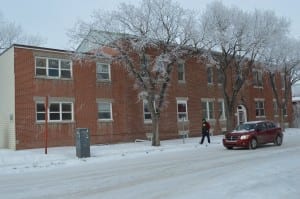Low-income housing cut

Stagnant minimum wage and high rent amidst defunding
Students hoping to find affordable housing in Regina or other urban centres are in for a harsh surprise as of March 1. The provincial government’s decision to outright cancel its affordable housing program in favour of a total conversion to social housing has drawn the ire of the province’s Opposition.
David Forbes, Saskatchewan New Democrat Party housing critic, states that there are more indicators than just the vacancy rate working against the people of Saskatchewan.
“[The] vacancy rate is just one indicator, there are many others we should be looking at. We don’t have the stats to really give a true picture of housing. One is the affordability of rent. We don’t know what that really is. We don’t know about overcrowding.”
In 2014, the Canada Mortgage and Housing Corporation (CMHC) released its Rental Market Report. The report noted a 2.5 per cent vacancy rate, but as Forbes explained, vacancy rates don’t show the entire picture.
“We know in our communities it isn’t unusual to have people doubling or tripling up because the rents are simply too high. That actually lends to a high vacancy rate when people actually can’t afford to pay their rent. We know that’s actually happening more often than not.” Forbes goes on to say, “The third criteria we don’t often talk about is the quality of rent properties. We know some people are living in some pretty grim situations to get by.”
2700 of Saskatchewan’s 3500 affordable housing units are being converted to social housing beginning March 1, with most of the conversions happening here,
“This is a big deal for Regina. Of the 2700 units being converted, 1100 are in Regina. While they say these 2700 will become available for social housing – it’s a very long time until they become available for social housing – because there are people in those places. Then we get into an odd waiting list where there is a system based on disability, if one is fleeing abuse, or dealing with addictions. And, rightfully so, they will get something quickly based on need. For people dealing with affordability issues, it will be tough,” said Forbes.
While Saskatchewan may be in a perceived economic boom, Forbes and the NDP feel that overall increases in wages would do much to alleviate stresses on the province’s housing.
“We know there’s been long waiting lists to get in. The situation for affordable housing in Saskatchewan is in really tough shape, particularly in urban areas where we have seen rents that are so high – the wages haven’t caught up. We’re really concerned about that and this is really a step backwards for working folk and students as well,” said Forbes.
Availability is a big contributor to Regina’s housing woes, but it is just one of several factors making Regina’s housing situation more perilous.
A new federal report on Saskatchewan’s housing situation will not be available for at least a year, meaning it will be hard to truly assess the impact
“The unfortunate thing about that is that Statistics Canada has seen its funding cut in past years by the Harper government and is not quite as reliable and robust as it once was,” said Forbes.
Though it is never bad to have more housing available for those in dire need, in a province where rent has skyrocketed and minimum wage has stagnated, one must feel for those others who the oil boom has left behind.









